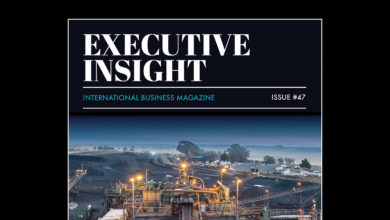It goes without saying that the benefits Yamana Gold have bought to the tables of thousands of workers and their families is something every organisation in the sector should stand up and take notice of. Yamana’s Procurement spokesperson, has told us very proudly that not only are the employees important to the business and their ongoing commitment to operational excellence across their sites, integrating with indigenous businesses within the Procurement function is also key to their growth too.
When setting up producing mine sites, it’s vital that local businesses within the procurement function can benefit around these operations to, especially as they and their families were in the area generations before the mine site itself. The way that this is done is by assisting in providing essential training and skill sets therefore allowing in the setting up of a successful entity. Once operational, the partner company can potentially grow by bringing in new members of staff and providing them with new skills in which they can flourish upon. The Mining industry isn’t going to stop developing and with other organisations always looking to explore in regions renowned for resources, these businesses are already poised to assist future operations.
Today, even in an industry as rough-and-tumble as mining, every company is a technology company. The rapid and ever-increasing integration of technology into the very fabric of every facet of nearly every national economy has not only changed the demand dynamics of most commodities but also altered the face of the mining industry itself. Mining is renowned for its conservatism, to the extent there is an old saying, ‘miners like to be first to be second,’ but the realities of a game which is how being played to new rules means that the industry can no longer continue to err on the side of caution. To take on the array of challenges facing it, such as more stringent environmental legislation, resource depletion, and volatile commodity prices, the very nature of the mining psyche has shifted.
As a company with form for staying ahead of the curve, the Canadian gold producer, Yamana Gold, has gone to great efforts in recent years to ensure that strategic thinking is innovation-centric. By integrating new tools and digital technologies into its operations, particularly in the supply chain, the company has already succeeded in adding value by improving operational efficiency. “The objective since the beginning has been transformation; it’s a transformation journey the company is going through,” explained Yamana Gold’s Procurement spoke person. In the past 3 years the Procurement team has embarked on a mission to not merely fine tune the company’s Procurement function but revolutionise this critical area of business. The spoke person continued:
“The procurement function had historically been highly decentralised, but the decision was made to begin centralising areas of our supply chain operations where it made sense to do so. Yamana keeps operations local where possible, of course, but taking a more corporate approach to supply chain management in this way has gone some way to modernising our operations. From starting from scratch, from decentralisation to centralisation with our process procedures and tools, we’ve changed the way we do business and improved the way we manage our relationships with suppliers.”
The adoption of a leaner, more centralised procurement model in this fashion has proved fruitful for Yamana, especially in terms of achieving efficiency through cost savings and the implementation of measures designed to streamline the procurement process. The new procurement process is a three-tiered system, operating at site level, country level and corporate level. Yamana Gold always seeks to ensure that each individual mine site, whether in Brazil, Canada, Argentina or Chile, works with suppliers at a site and country level, allowing it to not only support local communities and the local economy but also so that it can benefit from the synergies created. Broadly speaking, suppliers of services and consumables, like diesel, for example, are locally or regionally-based, but the acquisition of niche, specialist supplies are acquired globally.
Take tunnel development work or shift sinking, for example, or the acquisition of the world-class equipment and parts needed to maintain production in-line with the highest international standards – only world-class international suppliers such as Caterpillar or Sandvik can meet these requirements. Naturally, responsibility for managing this calibre of falls to the corporate level.
For any business in any industry, a polished, smooth-functioning supply chain is imperative. In an industry so competitive and unforgiving as mining, however, where the network of suppliers, transport and logistics systems, production facilities, and warehouses are responsible for extracting, processing and transporting huge quantities of resource, there is no margin for error. Every component part of the supply chain function must operate efficiently and cost-effectively, and every supplier must deliver to the highest standards.
“We have operational excellence initiatives at Yamana,” they continued: “We have implemented tools that measure price, volume and exchange rate impacts – this is called PVX. Then we look at consumption as well, and we also have our SRM (supplier relationship management) systems in place. We take measure, but we can’t monitor 100% of everything that is always happening, this is impossible because we have thousands of suppliers. Instead, we really measure our key service suppliers, particularly for equipment and maintenance which is crucial. Parts too. When you have a liner in the mill, for example, they are expected to last 6 months. We make sure we have replacements ready because it can shut down plant operations if they go down and we aren’t ready. These are the kind of critical things we must discuss, measure and keep tabs on.
Another thing that is also important for an industry with a global sourcing strategy is to have a good mix of new and long-standing suppliers, which allows them to boost competitiveness while also ensuring quality. Yamana must be careful, however. If you replace sources of good key parts and equipment with another supplier but their parts are worse in quality than promised, sure, you save US$500,000 but you lose millions later if operations suffer.”
Through blending the effective integration and leveraging of new technologies, particularly in the digital and big data-analytics spheres, with dynamic strategies and process, and of course a gifted, collaborative employee base, Yamana Gold is amongst the vanguard of miners that are driving progress in the sector. Progress is a multifaceted objective, however, their Procurement spoke person has noted, that while great strides forward have been made in dragging the mining industry into the 21st century with regards to business strategy and outlook, the industry still lags well behind other industries by measure of the proportion of women in leadership positions.
There are old sayings, I don’t know where they started, that imply women are dangerous in mining because they bring bad energy underground when they are nearby and cause accidents. This is very 19th century! When their Procurement spoke person was visiting the mines in Brazil one time and was underground, they remember thinking I wanted to be trained and I wanted to go underground, and the workers were laughing and joking and telling me these kind of stories. It’s not just in one country where you hear these stories, you hear these kinds of stories in many countries,”
Breaking down diversity barriers that have long discouraged or outright prevented people from achieving their full potential as a result of gender or race is one of the most prominent topics of conversation in business today.
Much like the rest of the business world, Yamana Gold and the mining sector at large are in something of a state of flux. It is difficult to predict what the future of the industry will look like, but what is certain is the old ways of doing things have gone the way of the dinosaur. The world is changing for the better – progress cannot be waylaid or resisted, it can only be embraced.



